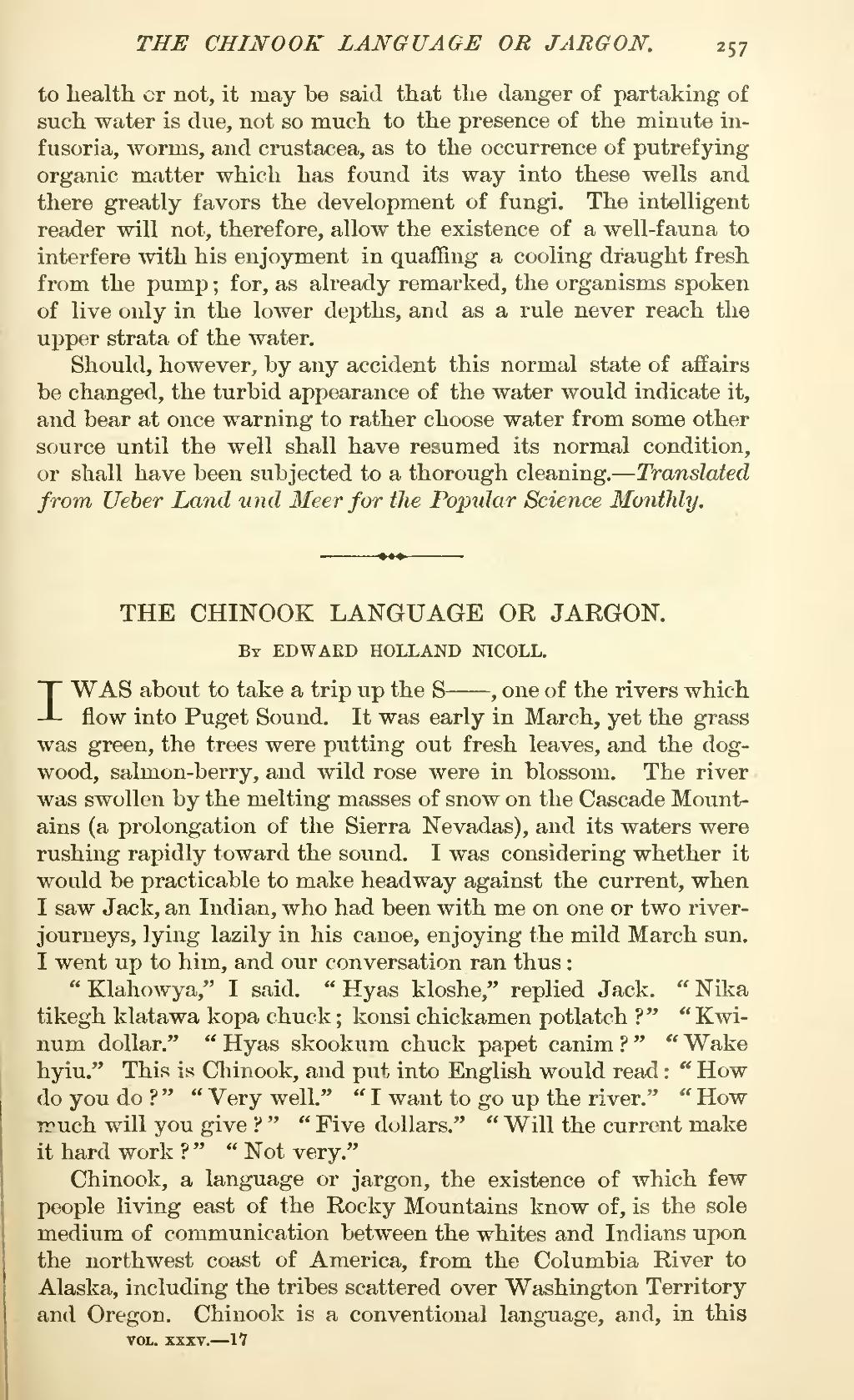to health or not, it may be said that the danger of partaking of such water is due, not so much to the presence of the minute infusoria, worms, and Crustacea, as to the occurrence of putrefying organic matter which has found its way into these wells and there greatly favors the development of fungi. The intelligent reader will not, therefore, allow the existence of a well-fauna to interfere with his enjoyment in quaffing a cooling draught fresh from the pump; for, as already remarked, the organisms spoken of live only in the lower depths, and as a rule never reach the upper strata of the water.
Should, however, by any accident this normal state of affairs be changed, the turbid appearance of the water would indicate it, and bear at once warning to rather choose water from some other source until the well shall have resumed its normal condition, or shall have been subjected to a thorough cleaning.—Translated from Ueber Land und Meer for the Popular Science Monthly.
| THE CHINOOK LANGUAGE OR JARGON. |
By EDWARD HOLLAND NICOLL.
I WAS about to take a trip up the S, one of the rivers which flow into Puget Sound. It was early in March, yet the grass was green, the trees were putting out fresh leaves, and the dog-wood, salmon-berry, and wild rose were in blossom. The river was swollen by the melting masses of snow on the Cascade Mountains (a prolongation of the Sierra Nevadas), and its waters were rushing rapidly toward the sound. I was considering whether it would be practicable to make headway against the current, when I saw Jack, an Indian, who had been with me on one or two river-journeys, lying lazily in his canoe, enjoying the mild March sun. I went up to him, and our conversation ran thus:
"Klahowya," I said. "Hyas kloshe," replied Jack. "Nika tikegh klatawa kopa chuck; konsi chickamen potlatch?" "Kwinum dollar." "Hyas skookum chuck papet canim?" "Wake hyiu." This is Chinook, and put into English would read: "How do you do?" "Very well." "I want to go up the river." "How much will you give?" "Five dollars." "Will the current make it hard work?" "Not very."
Chinook, a language or jargon, the existence of which few people living east of the Rocky Mountains know of, is the sole medium of communication between the whites and Indians upon the northwest coast of America, from the Columbia River to Alaska, including the tribes scattered over Washington Territory and Oregon. Chinook is a conventional language, and, in this

